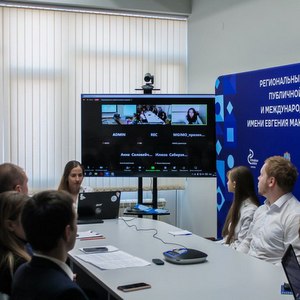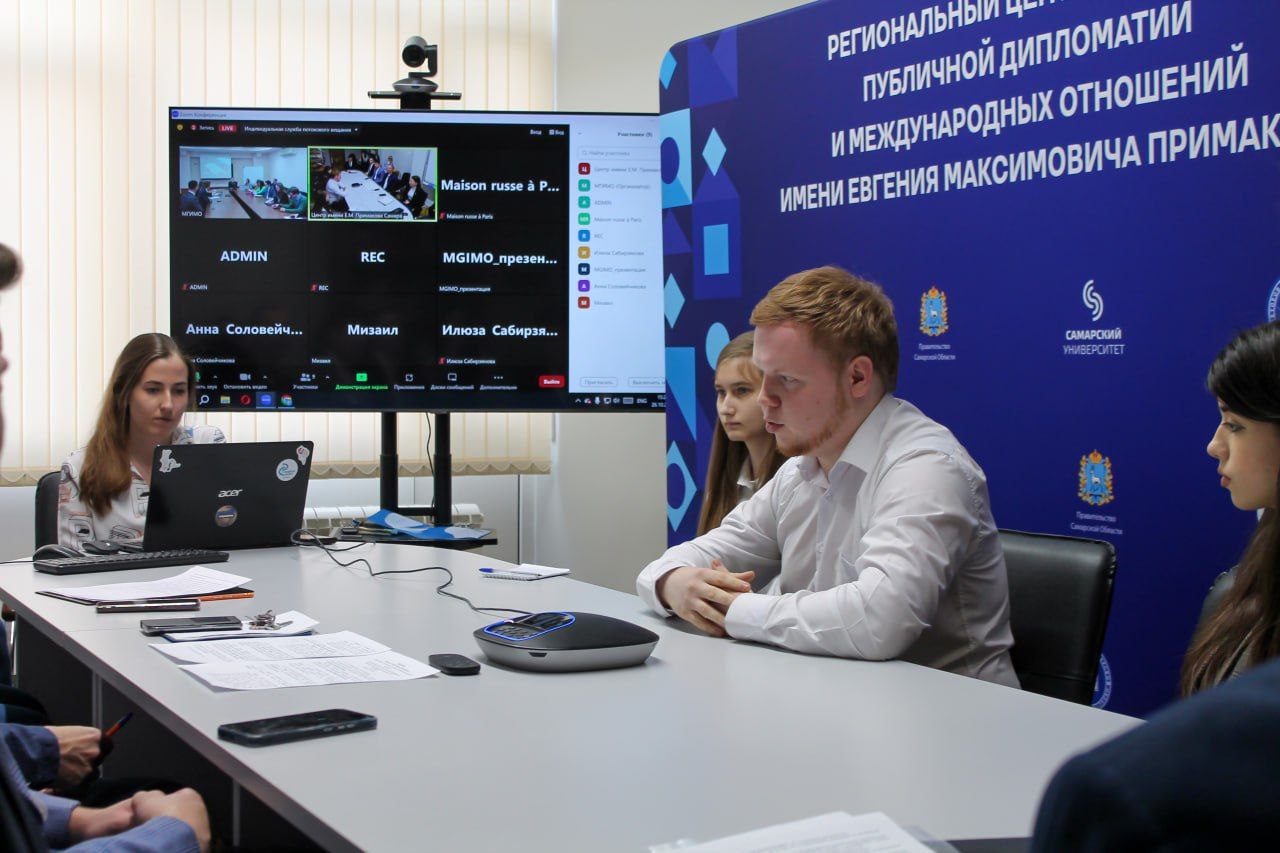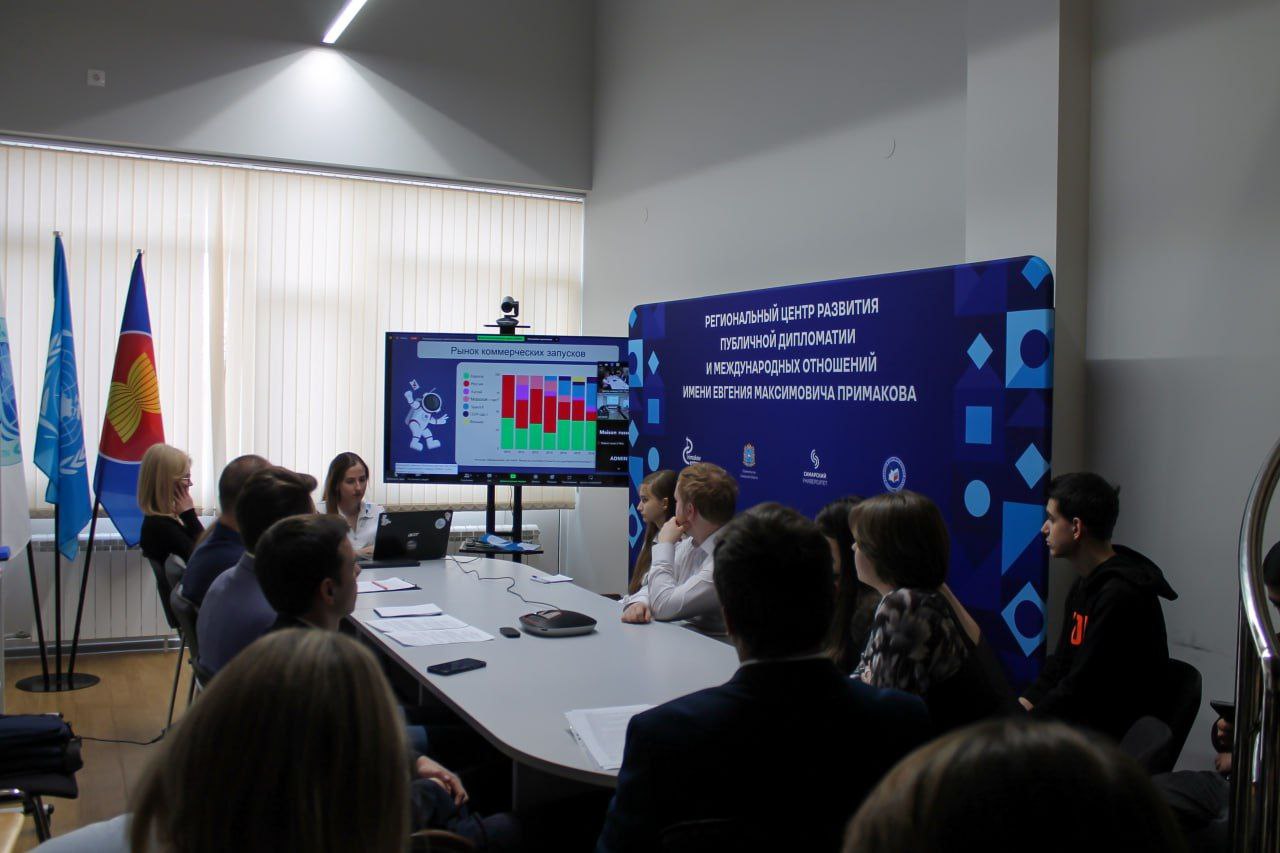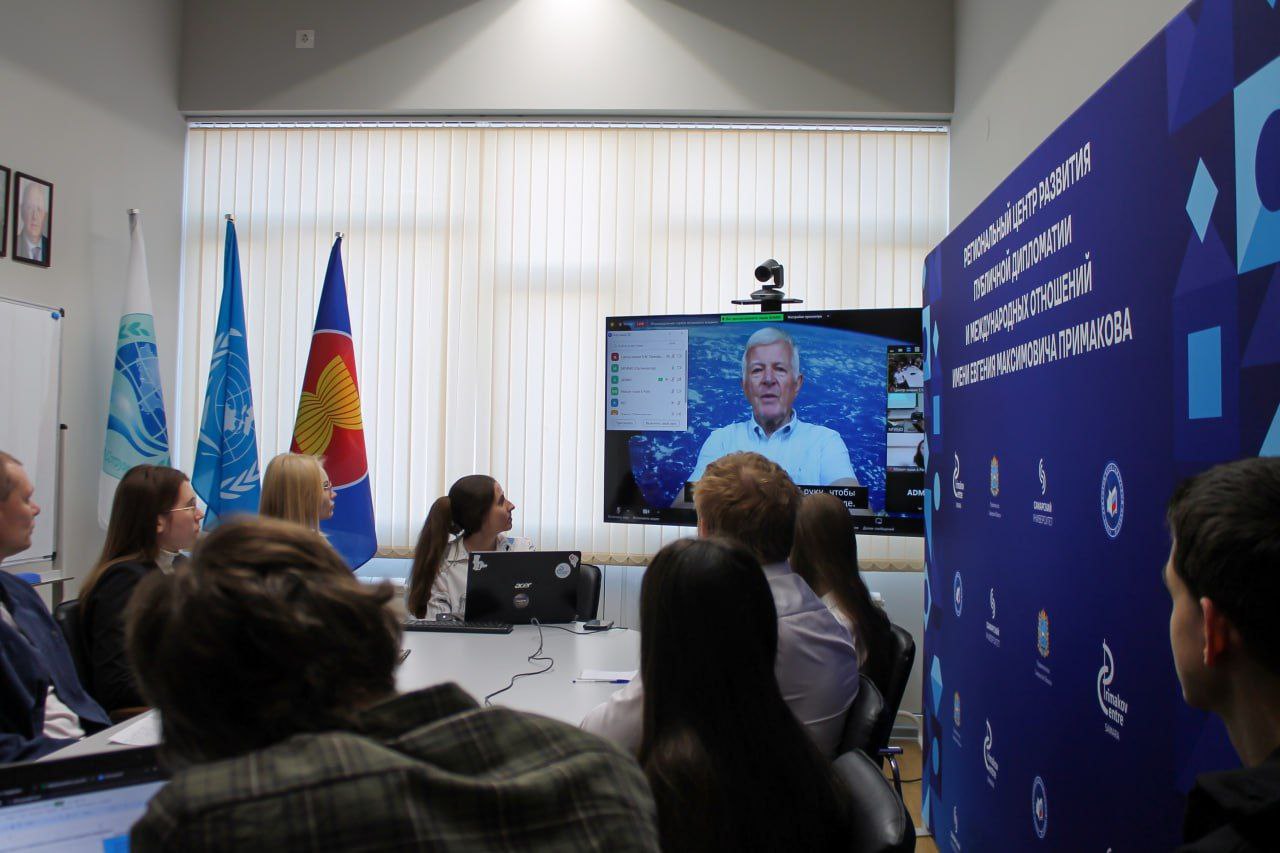Samara University is represented in the event arrangement by its E.M. Primakov Regional Centre for Development of Public Diplomacy and International Relations.
The students also learned about the history of Russian-French relations in the field of space exploration. This was told by the employee of the Russian House of Science and Culture in Paris (Rossotrudnichestvo) Asya Ovchinnikova. She recalled that the first agreement between the USSR and France was signed on July 30, 1966. This agreement resulted in launching two French satellites by Soviet launch vehicles, and becoming the French cosmonaut Jean-Loup Chretien a Hero of the Soviet Union. In 2023, Rossotrudnichestvo celebrated the 40th anniversary of the Soviet-French Salyut-7 mission, and the 30th anniversary of the Russian-French Antares mission. Samara specialists participated in building the cosmodrome on the island of Kourou, and the Progress Rocket and Space Centre designed the special version of the Soyuz launch vehicle — Soyuz-ST — intended for launching in conditions of the equatorial cosmodrome.
Cosmonaut Jean-Loup Chretien himself welcomed the students. He noted importance of the issues to have been announced for the teleconference, and recalled that, having risen into orbit, people turn into cosmopolitans: they represent no specific nation, but humanity as a whole. “Space is the environment hostile to humanity, so we will be able to settle down there only if we unite our efforts and sink feuds”, assured the French cosmonaut.
Anastasia Tolstikova, a student of Samara University, presented the space-diplomacy development review. Being a 4th-year student trained in the specialty “International Relations”, the girl stressed that the documents, which current Space Law is based on, were developed in the middle of the past century, and require updating.
“Contradictions in areas, such as International Space Law, operation of private space companies, environmental problems, in particular, the problem of garbage in the near outer space, increasingly escalate now”, reminded Anastasia. “In outer space, we must act as a truly united civilization, which has one common home — our planet Earth”.
Oleg Mansurov, the representative of the Russian private company “SR Space” spoke at the MGIMO venue. He addressed the students, and suggested thinking about the role of private companies in developing the industry. “So far, there are two approaches to development of private cosmonautics. On the one hand, it is the American approach, when large-scaled business and IT companies are aimed at outer space. Two processes have been launched in China. On the one hand, non-government venture funds finance the infrastructure development. On the other hand, they have organized technology transfer from state research institutes and universities to startups”.
Students from the MGIMO Space Diplomacy Club analyzed the existing obstacles to implementation of space cooperation. Nelson Avakyan, a student of the MGIMO Faculty of International Relations, emphasized attempts to change the existing international legal regime for the use of outer space, which could lead to weapons to be placed in the orbit of the planet, and military operations to be conducted there. As an example of potential violation of another international document — the Agreement on the Use of Lunar Resources, adopted in 1979, — the young man called the “Artemis Agreement” Memorandum. “This Memorandum introduces the term “security zones” on celestial bodies, which the legal regime of a particular nationality can be established in, and this contradicts international agreements”, said Nelson Avakyan. The students recalled that just a few days ago, on October 16, 2023, Russian diplomats submitted to the UN Committee on the Peaceful Use of Outer Space the Resolution “Space Technologies for Peace Promotion”, which suggests preventing the use of satellites for military purposes.
During the teleconference, students raised both economic and environmental issues of the use of outer space exploration and its resources.
Summing up, the teleconference participants noted that, despite the international geopolitical situation, it is necessary to jointly work with the BRICS countries in the field of outer space collaboration. In legal terms, it is necessary to create conditions for attracting private capital to the rocket-space industry, and organizing public-private partnerships.
 RU
RU  EN
EN  CN
CN  ES
ES 


.jpg)
